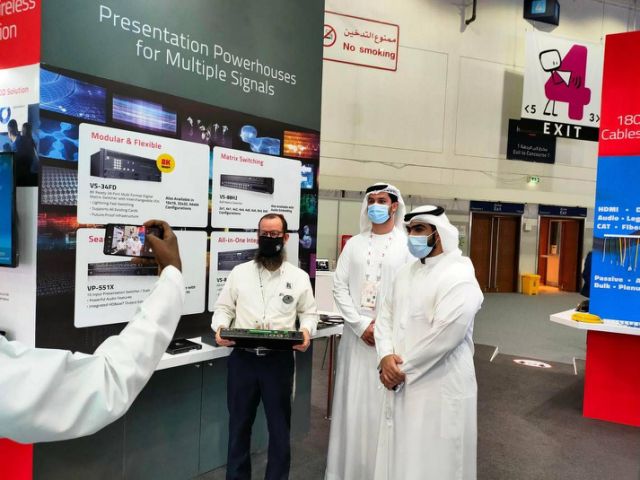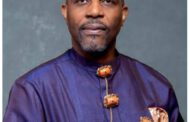Daniel Shoer RothThu, December 24, 2020, 5:00 AM PST
Looking like a traditional religious Jew — a full beard and a kippah on his head as a sign of humility — it was understandable that Joseph Kohan drew curious and indiscreet looks as he walked down a busy shopping mall in Dubai on a recent evening.
Just a few months before, Israel and the United Arab Emirates (UAE) had reached a historic peace accord. The presence of an observant Jew on the streets of a Muslim country was not just a novelty but truly a marvel.
Two local men, dressed in the typical white robes, stopped him to have their pictures taken together, a repeated request that he grew accustomed to during his visit. They wished him shalom and expressed their delight over his visit. They shook his hand with force, reiterating their friendship.
“This is the new Middle East,” Kohan wrote as he shared a powerful photo on Facebook — showing a Jew and an Arab holding hands and smiling, leaving behind old enmities between ancestors.
I’m walking in a open mall in Dubai, this man and his friend came to me (never saw them before), blessed me with “Shalom…
Posted by Joseph Dov Kohan on Wednesday, December 9, 2020
His journey illustrates how the simple human presence — showing your face, as they say — can gather enough power to knock down the ideological or sectarian walls of prejudice, intolerance and ignorance.
A friend from my childhood, Kohan is a Venezuelan Israeli who lives with his wife and six children 30 minutes from Jerusalem. As an ultra-Orthodox Jew, he never expected to visit a country ruled by Shariah. But life is full of surprises, and he wound up representing an Israeli company at one of the biggest technology fairs in the Middle East, GITEX 2020.
He was not the only Jew visiting, but he was the most identifiable because of his religious garb. With the peace treaty as a backdrop, he became a sensation at the fair and outside, drawing interest from the media and people on the street.
“My sense is that I became one of the actors in the peace process, and being there, among the first to represent Israel, as well as being seen as Orthodox, gave me a bigger role,” said Kohan, 46.
“True peace is made by people,” he told me. “The political signatures come later. What’s important is that the populations can respect each other.”
Progress toward peace
With pushing from the United States, there’s been an increased understanding in the Middle East. President Trump presided over accords that normalized relations between Israel and four Arab states — the UAE, Bahrain, Sudan and more recently Morocco, where its Jewish presence dates back more than 2,000 years.
Kramer Electronics, the manufacturer of products for video and audio installations where Kohan works, received several offers from distributors in Dubai who wanted to represent it in the wealthy UAE. The distributor that won the deal had reserved kiosk space at GITEX, and handed over all the space to its new Israeli partner.
Kohan, known as Yossy to his friends, had to hustle. As head of technical marketing, he was selected for the pioneer commercial mission. He had less than three weeks to organize the company’s participation in the fair, a process that normally requires three months of planning.
And there was another obstacle. His Venezuelan passport, like those of thousands of other Venezuelans around the world, had expired. The Venezuelan government broke diplomatic ties with Israel 10 years ago. It was not clear whether he could enter the UAE with an Israeli passport, because the agreement on travel takes effect at the end of this month. Even so, the Dubai airport opened its doors and did not stamp his entry on his passport, he said.
“After the peace accords were signed, social media saw many expressions of mutual regard by the populations of both countries. It was something incredible, but I never imagined I would be involved,” Kohan said, adding that at no time did he feel unsafe — something unusual in a world where the beasts of anti-Semitism and xenophobia are rampant.
The signs of acceptance and hospitality showed up from the beginning — and not just because the hosts offered kosher food. Just before sunset, observant Jews pray Mincha, the afternoon prayer, as a way to take a step back from the frenzy of daily life and communicate with a higher power.
Kohan often represents his company at business fairs around the world and always manages to find a quiet corner to pray. This time, he was taken to the Dubai World Trade Center administrative offices, owned by the UAE’s rulers, where two young women dressed in traditional black abayasset aside a special room for visiting Jews.
“We were stunned by the understanding of the other shown there,” he said.

Emotional experiences
During the fair, Kohan recalled, government officials as well as business people and common residents constantly approached him. Not just to talk business, but to get to know him as a human being.
When they praised his presence at the fair, they put their right hands over their hearts, a gesture of the sincerity that their words carried.
Yossy grew up in a secular Jewish family in Caracas, his mother of Russian origin and his father from Argentina. Without any prior religious instruction, he began, as a teenager, to study and practice traditional Judaism, a beautiful period of faith we shared after I had studied in a yeshiva across from the Western Wall in Jerusalem.

Trying to dig deeper into the riches of the Hebrew scriptures, he immigrated to the Holy Land in 1995. Two years later, I joined the Venezuelan diaspora when I came to the United States for post-graduate studies.
After sharing his beliefs in Dubai, openly and in peace, Kohan said he learned a lesson. “I learned John Lennon was wrong,” he said. “You don’t make peace eliminating the beliefs or national pride of people. Peace is made by people who are different, and it’s not necessary to erase our origins to achieve peace.”
Kohan left Dubai before the end of the fair to join his family for Hanukkah, which marks the heroic Maccabean rebellion against efforts to conquer the Hebrew people and extinguish their culture more than 2,000 years ago. The holiday teaches us that we cannot allow others to control our free will, dictate what we have to do or what we have to be.
As long as mutual respect is upheld, full authenticity is the best component to build bridges of tolerance and acceptance.
Daniel Shoer Roth, an el Nuevo Herald audience growth editor, is the author of the authorized biography of the Archdiocese of Miami’s late Bishop Agustín A. Román. Follow him on Twitter or Instagram.
Courtesy: Miami Herald













